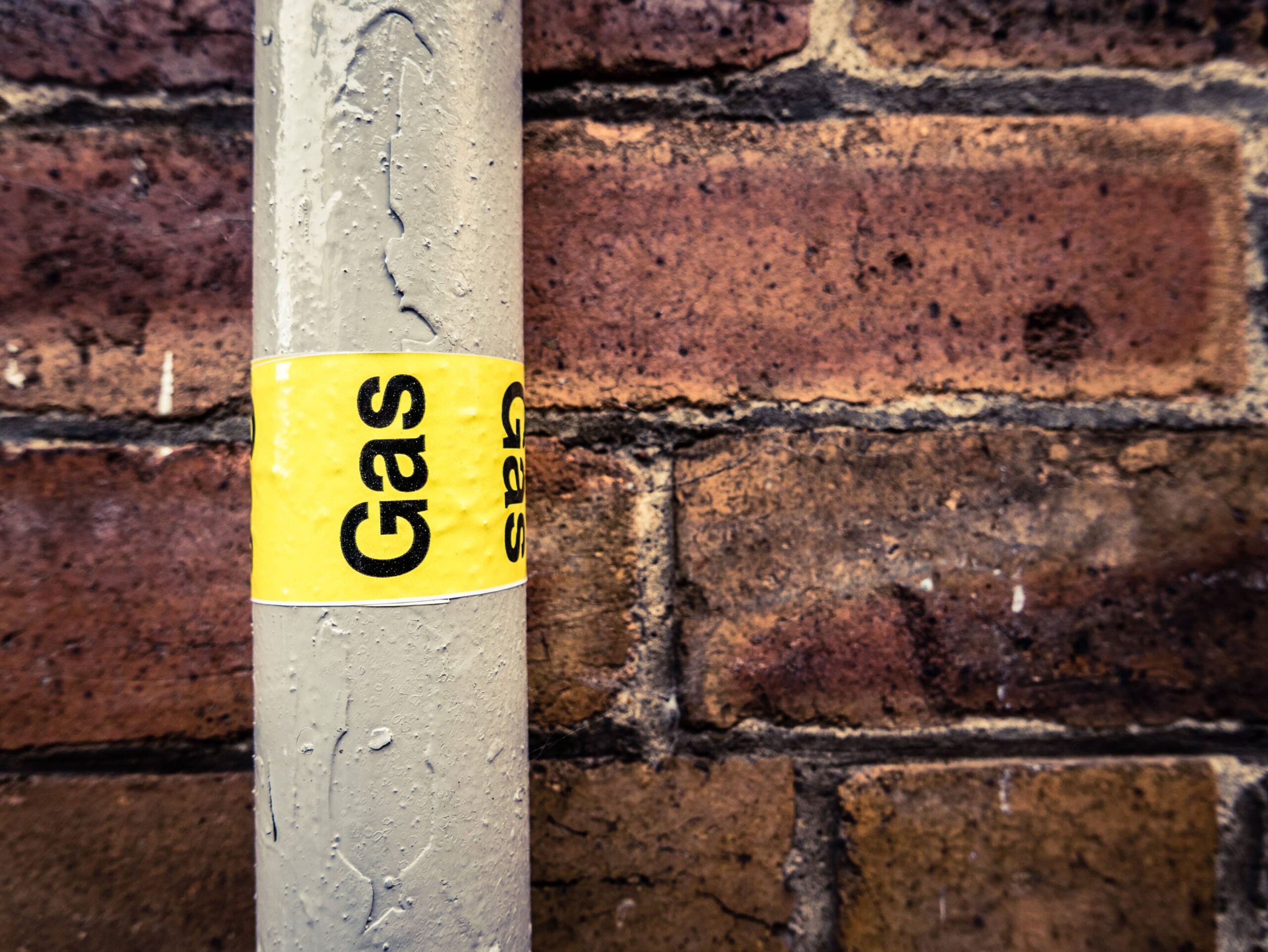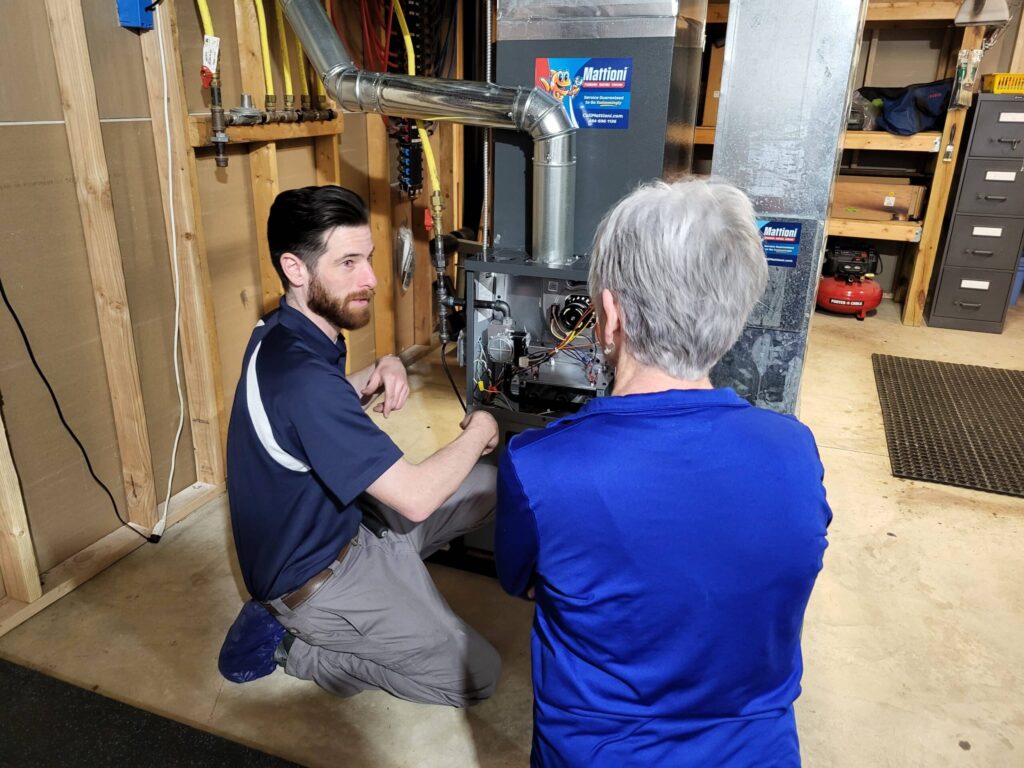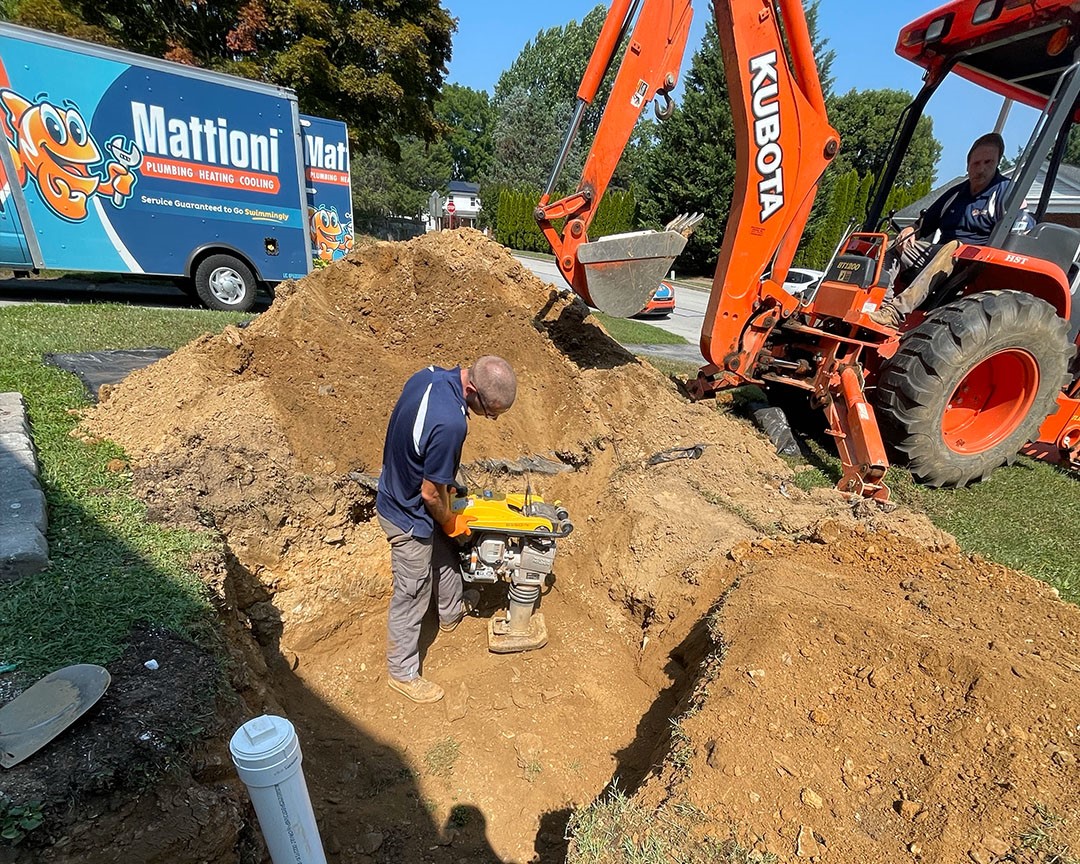|
Getting your Trinity Audio player ready...
|

Last Revised: 10/25/24
Are you trying to choose between a natural gas or propane furnace? Do you feel overwhelmed by the decision-making process of making the right call for your home?
If so, you’ve come to the right place.
Sifting through the types of furnaces and selecting one to install can be a complicated process if you go at it alone. The choice entails far more than just comfort – it’s about finding a balance between performance, energy efficiency and up-front costs that works for you.
If done right, your furnace is a purchase that you won’t have to make again for at least the next decade, so making an informed decision is paramount.
That’s why we’re here to help.
With over 76 years in the business, Mattioni’s HVAC experts have helped countless homeowners through this exact process. And we’re here to assist you too, as you answer the question: is a natural gas or propane furnace better for me?
In this article, we’ll lay out all the pros and cons of both types of furnaces and give you the insight you need to take the next steps in your system replacement process. By the end you’ll have all the tools you need to have a conversation with an HVAC professional about selecting a furnace for your home.
We start things here, with the advantages of natural gas.
Pros of Natural Gas Furnaces: High Energy Efficiency & Direct Supply
1. Greater Energy Efficiency
Natural gas is known for its leading energy efficiency in the world of home heating systems. In other words, natural gas produces more heat, measured in BTUs (British Thermal Units), than most other heating systems.
That way, you’ll use less fuel to keep your home warm.
While there are other alternative heating solutions (like heat pumps and mini split systems) that may potentially rival the energy efficiency of natural gas furnaces, none can produce the same level of warmth. This makes natural gas furnaces an attractive option for those who want to reduce their energy consumption without sacrificing comfort.
Over time, the energy efficiency of natural as can lead to lower overall heating costs, especially in areas with brutally cold winters.
2. Lower Long-Term Costs to Heat Your Home than Propane
The affordability of natural gas is one of its biggest advantages, and is a popular reason that homeowners make the switch. Per unit, it’s typically cheaper than propane, which can result in big savings over years of use.
Be sure to balance the long-term utility savings with any potential differences in installation costs when considering each option. However, many homeowners find that the long-term savings outweigh the initial setup expenses.
This makes natural gas a more economical option for those looking to save on energy bills year after year.
3. Direct & Constant Supply to Your Home
Unlike propane, which requires deliveries to restock on fuel, natural gas is supplied via a pipeline, providing a constant and uninterrupted supply of fuel.
This is a major convenience for those who don’t want to worry about running out of fuel during cold weather. With natural gas there is no need to monitor fuel levels or schedule deliveries; it’s always there when you need it.
This reliable supply means your furnace can keep your home warm while you enjoy peace of mind.
4. Increasing Availability in Urban and Suburban Areas
To opt in for natural gas as a fuel source for your furnace, your home must have access to it. This could be an insurmountable hurdle for homeowners in neighborhoods that don’t yet have this infrastructure in place.
However, in urban and suburban areas, utility companies are continually investing in creating these access lines. This means that if you live near a city or in a highly populated suburban area, you’re likely to get access over the next few years if you don’t already have it.
Cons of Natural Gas Furnaces: Limited Access & Conversion Costs
1. Limited Availability in Rural Areas
When it comes to the availability of natural gas, as we just mentioned, if you live in a rural area then you may be out of luck.
For utility companies, installing a natural gas line in remote locations can be prohibitively expensive, or not an option at all.
In cases where homes don’t have gas line access, propane may be the more practical solution due to its ability to be delivered and its relatively high energy efficiency.
2. Higher Installation Costs if Converting from Another Fuel Source
Homeowners who are making the switch to natural gas for the first time may potentially run into installation expenses in a much higher price range. This comes from the infrastructure work necessary to extend the natural gas line from your street to your home.
In some cases, these costs can be so high that the long-term utility savings don’t offset them, and propane is the more practical option. When you get to this point, have a candid conversation with your HVAC professional about which fuel source is best for your situation.
3. There are Potential Safety & Environmental Risks
Natural gas is generally safe, but if there’s a leak it can be a serious safety risk as it’s colorless and odorless. Since it’s undetectable, those who rely on natural gas for heating should routinely ensure that they have a properly functioning carbon monoxide detector installed.
Although not a top-of-mind factor, the environmental consequence of extracting natural gas has the potential to contribute to climate change and global warming. Methane, a potent greenhouse gas, can leak during the extraction process and directly affect the Earth’s atmosphere.
Pros of Propane Furnaces: Clean, Available, Reliable
1. It Burns Cleaner than Natural Gas
Propane and natural gas each have their own pros and cons with energy efficiency and environmental impact. But when it comes to which fuel source produces fewer carbon emissions, it’s propane.
Moreover, propane is non-toxic, meaning it won’t harm soil or water if leaked, unlike natural gas.
This makes it the more environmentally friendly option in many situations, which is a major factor for homeowners looking to minimize their household’s carbon footprint and impact on the environment.
2. Its Widespread Availability Makes it an Option for Everyone
Unlike natural gas, propane is available everywhere, including in rural regions.
The freedom to have it delivered to your home (instead of needing access from a utility company’s gas line) makes it a practical option for all homeowners who want an efficient, reliable heating system.
3. Comparable Heating Performance
While natural gas is generally a bit more efficient, propane still offers excellent heating performance. In fact, some folks have shared that propane furnaces produce warmer heat.
Propane’s strong heating capacity ensures that your home will stay cozy through the coldest winter nights. Ultimately, the difference in performance between the two fuels is negligible.
Cons of Propane Furnaces: Higher Fuel Costs & Storage Logistics
1. Higher Fuel Cost
While propane is efficient, it’s usually more expensive per unit than natural gas, and prices are subject to fluctuations. Most notably, prices tend to spike during the winter. This can potentially make a propane furnace much more expensive to operate.
If you install a propane furnace, make a point to schedule your fuel delivery several months before winter, to avoid additional costs tied to market conditions.
2. Requires Storage Tank and Deliveries
Propane must be stored in a large tank, which is usually buried on your property or installed in your basement. It requires regular monitoring and refills, which can be a hassle from a homeownership perspective.
For example, throughout the course of a particularly cold winter, you may need to have more propane delivered. You’ll need to keep a close eye on fuel levels as to not run out unexpectedly.
This is a clear disadvantage when compared to the ease of access that comes with natural gas.
3. Tank Maintenance is Needed
In addition to refills, propane tanks also require maintenance to keep up with safety precautions and to maintain system health.
This includes checking for leaks, cleaning the tank when needed, and other inspections.
While propane provides flexibility in areas without natural gas lines, the added responsibility of tank upkeep can be a drawback for some homeowners.
Making Your Furnace Fuel Choice: Natural Gas or Propane?
While each option has its own benefits and drawbacks, choosing between a natural gas and propane furnace ultimately depends on your specific needs and personal priorities.
Both choices offer excellent energy efficiency and reliable heating, but natural gas may be the more cost-effective and convenient choice (so long as you live in an area with access to it). On the other hand, propane provides more flexibility, especially in rural neighborhoods, and burns cleaner with fewer environmental risks.
If you value long-term fuel savings and ease of use above all else, natural gas may be the way to go. However, if you value fuel flexibility and environmental friendliness, or live in an area without access to natural gas, propane might be for you.
Still not sure which furnace is right for you? Contact the HVAC experts at Mattioni. With over 76 years of experience, we can help you weigh the pros and cons of each system and find the perfect heating solution for your home.
Call (610) 400-8510 or book an appointment directly online today.






